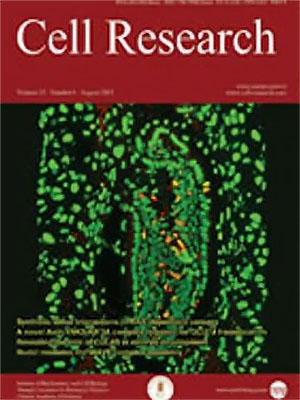
Volume 15, No 1, Jan 2005
ISSN: 1001-0602
EISSN: 1748-7838 2018
impact factor 17.848*
(Clarivate Analytics, 2019)
Volume 15 Issue 1, January 2005: 43-48
REVIEWS
Nucleo-cytoplasmic communication in apoptotic response to genotoxic and inflammatory stress
Jean Y. J. WANG*
Division of Biological Sciences and Moores Cancer Center, University of California, San Diego, La Jolla, CA 92093-0322, USA
Correspondence: Jean Y. J. WANG(jywang@ucsd.edu)
Genotoxic agents or inflammatory cytokines activate cellular stress responses and trigger programmed cell death. We have identified a signal transduction module, including three nuclear proteins that participate in the regulation of cell death induced by chemotherapeutic agents and tumor necrosis factor (TNF). In this nuclear signaling module, retinoblastoma protein (Rb) functions as an inhibitor of apoptotic signal transduction. Inactivation of Rb by phosphorylation or caspase-dependent cleavage/degradation is required for cell death to occur. Rb inhibits the Abl tyrosine kinase. Thus, Rb inactivation is a pre-requisite for Abl activation by DNA damage or TNF. Activation of nuclear Abl and its downstream effector p73 induces mitochondriadependent cell death. The involvement of these nuclear signal transducers in TNF induced apoptosis, which does not require new gene expression, indicates that nuclear events other than transcription can contribute to extrinsic apoptotic signal transduction.
FULL TEXT | PDF
Browse 1900


